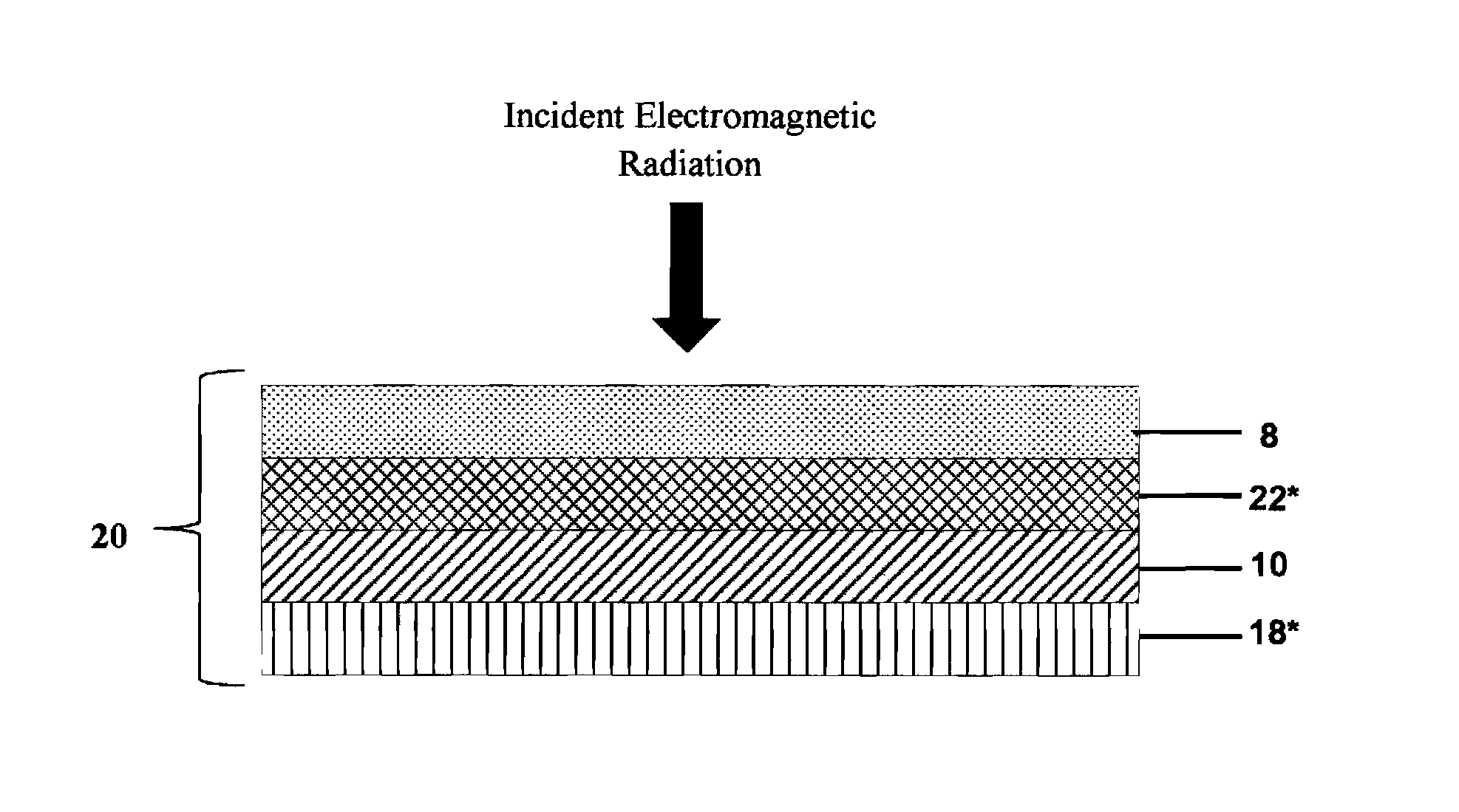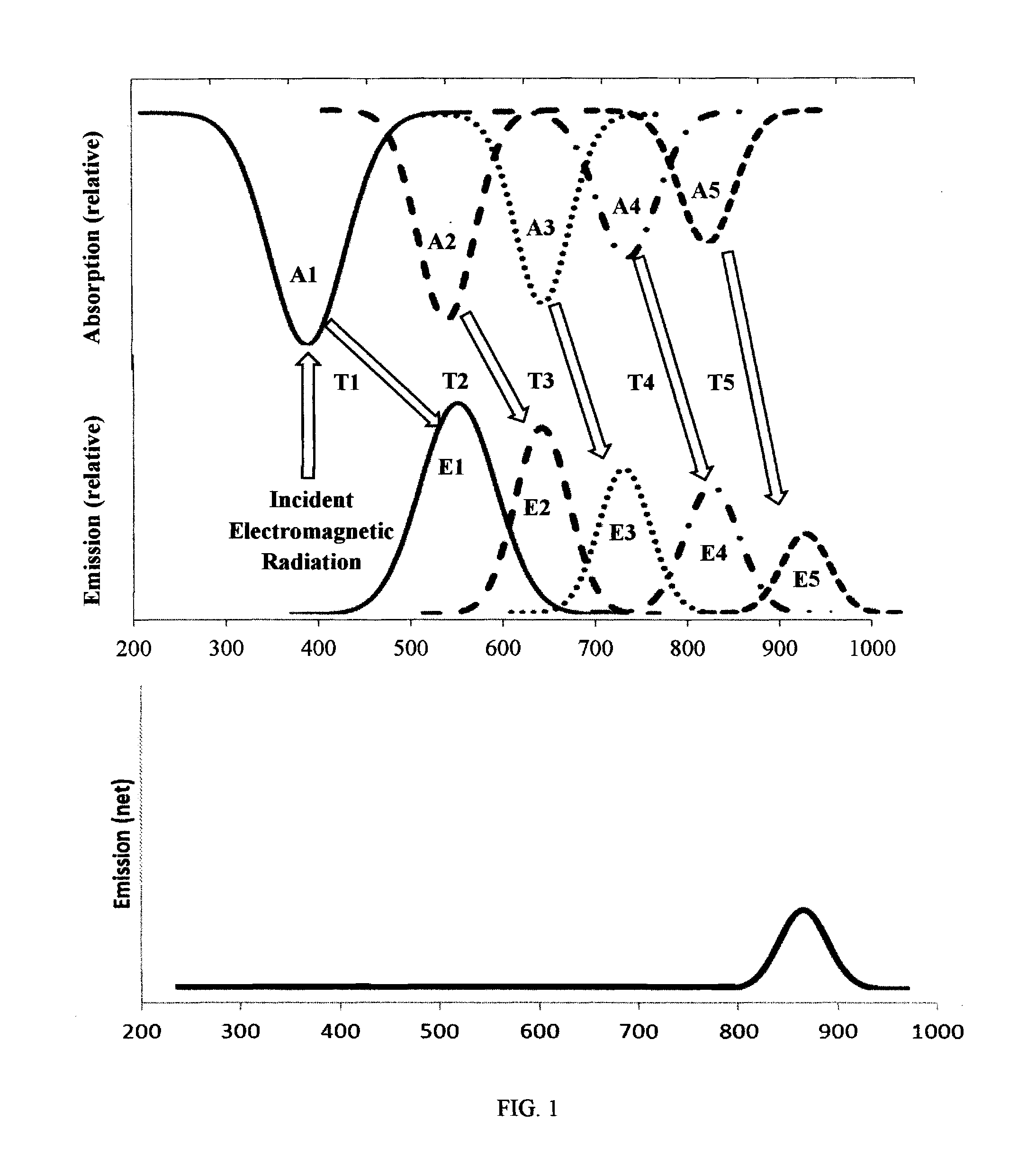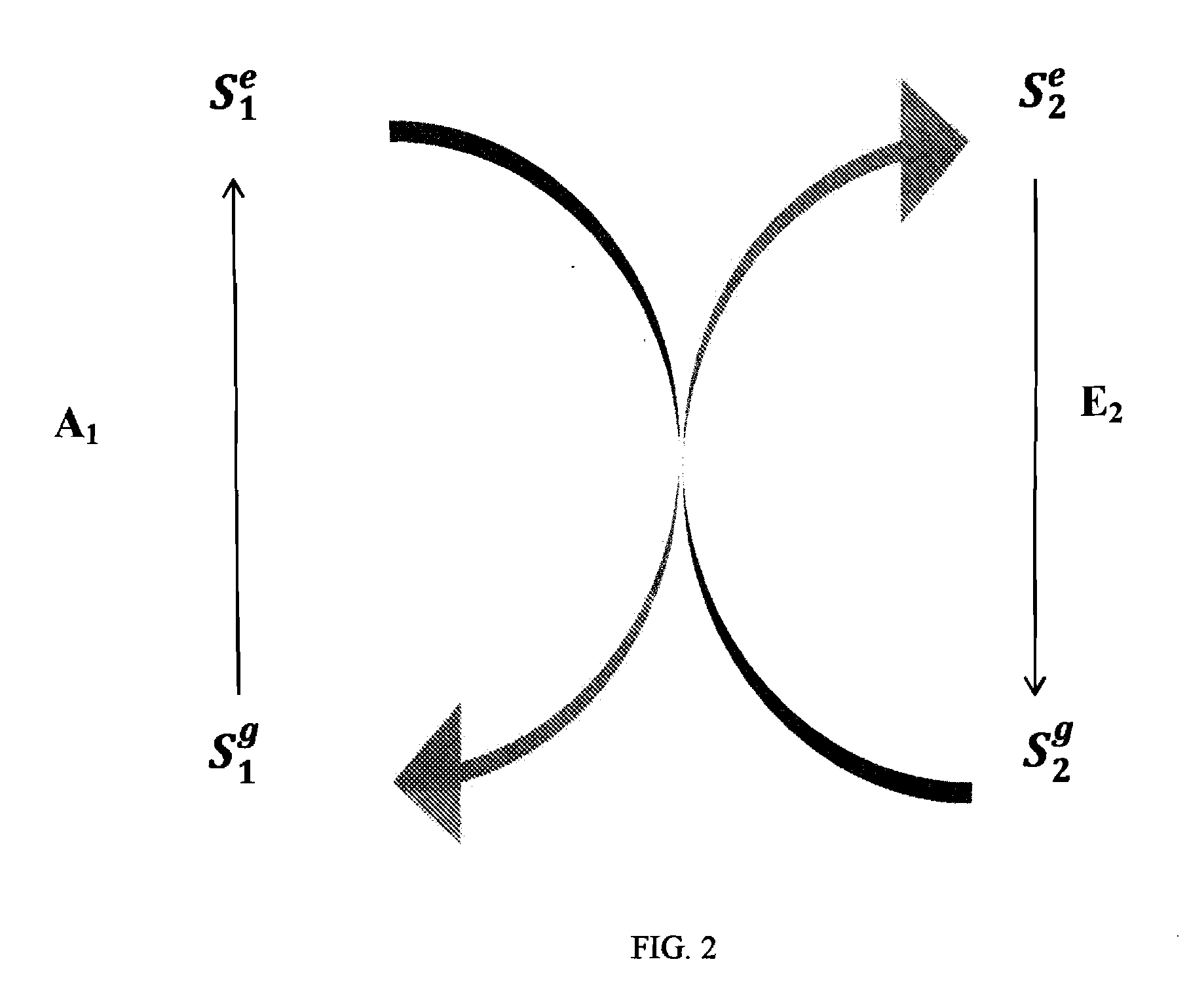Low rare earth mineral photoluminescent compositions and structures for generating long-persistent luminescence
a technology of photoluminescent compositions and structures, applied in the field of photoluminescent compositions or structures, can solve the problems of environmental instability of photoluminescent phosphors, limited indoor applications and limited use of metal sulfide pigments. to achieve the effect of enhancing the stability of one or more fluorescent materials, and enhancing the stability of one or more fluorescent layers
- Summary
- Abstract
- Description
- Claims
- Application Information
AI Technical Summary
Benefits of technology
Problems solved by technology
Method used
Image
Examples
example 1
Preparation of Low Rare Earth Mineral Photoluminescent Composition (Characterized as 2 in FIG. 5)
[0084]A formulation containing 100 parts of a commercial solvent-borne polyurethane, such as Mace resin 107-268, having 50% solids polyurethane in Toluene / Isopropanol, and 125 parts of a blue green long persistent phosphor, such as Performance Indicator PI-B20, was prepared and mixed at room temperature. To this solution was added 12.5 parts of a dye solution containing 0.1% Lumogen Yellow F083 in dioxolane and the mixture was stirred at room temperature until fully dissolved to yield a low rare earth mineral photoluminescent composition.
example 2
Preparation of One or More Fluorescent Layers (Characterized as 10 in FIGS. 6-10)
[0085]A formulation containing 100 parts of an acrylic copolymer, such as Lucite Elvacite 2014, 65 parts toluene, 6.5 parts plasticizer, such as Plasthall P670, 0.9 parts wetting agent, such as Noresil S-900, 0.3 parts dye Lumogen Yellow F-083, 0.0375 parts dye Lumogen Yellow F-170, and 0.0375 parts dye solvent blue 38 was prepared and stirred at room temperature. The formulation was coated on release base at 10 mils or 250 microns wet thickness and dried at 35° C. for 4 hours and then at 80° C. for an additional 12 hours (for ensuring low residual solvent) to yield a 3 mil or 75 micron thick fluorescent layer.
example 3
Preparation of Phosphorescent Layer (Characterized as 8 in FIGS. 6-10)
[0086]A formulation containing 100 parts of a commercial solvent polyurethane, such as Mace resin 107-268, having 50% solids polyurethane in Toluene / Isopropanol, and 125 parts of a blue green long persistent phosphor, such as Performance Indicator P1-B20, was prepared and mixed at room temperature. This formulation was then coated onto release base at 15 mils wet thickness and dried at 35° C. for 4 hours and then at 80° C. for an additional 12 hours to yield 5 mil thick phosphorescent layer.
PUM
| Property | Measurement | Unit |
|---|---|---|
| wavelengths | aaaaa | aaaaa |
| wavelengths | aaaaa | aaaaa |
| photoluminescent structure | aaaaa | aaaaa |
Abstract
Description
Claims
Application Information
 Login to View More
Login to View More - R&D
- Intellectual Property
- Life Sciences
- Materials
- Tech Scout
- Unparalleled Data Quality
- Higher Quality Content
- 60% Fewer Hallucinations
Browse by: Latest US Patents, China's latest patents, Technical Efficacy Thesaurus, Application Domain, Technology Topic, Popular Technical Reports.
© 2025 PatSnap. All rights reserved.Legal|Privacy policy|Modern Slavery Act Transparency Statement|Sitemap|About US| Contact US: help@patsnap.com



